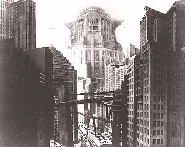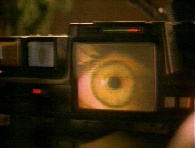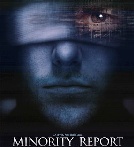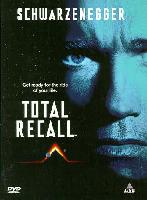Paul M. Sammon Interview
| What is BR? |
| News & Views |
| The FAQ |
| Encyclopedia |
| Quotes |
| People |
| Locations |
| Scripts |
| Analysis |
| Fan-tastic |
| BR Fun |
| BR Game |
| BR Magazine |
| BR Comic |
| Downloads |
| Collectibles |
| Related |
| Links |
| Site Info |
| Search Site |
BRmovie.com is the Home of Blade Runner - the current Blade Runner FAQ, news, resources, links, quotes, scripts and everything else Blade Runner.

![]()
Blade Runner
Buy this Mini Poster at AllPosters.com
|
Any
Comments?
Please e-mail the Webmaster |
| Want the DVD? Or the BR Game? Don't know which books or music to get? Maybe you'd like a Deckard action figure? Make sure you check the BR Related section for all your BR choices. |
|
N: One of PKD's themes that Scott definitely did incorporate is the pervasive paranoia in Blade Runner - the Big Brother implications of the huge eye, the invasive shafts of light, surveillance, etc. How was this so successfully weaved into the film, and did Scott reference other books/films in early research when figuring out how best to achieve it?
PS: Jordan Cronenweth once told me that BR's famous shafts of light had been influenced by the same type of lighting scheme Gregg Toland used for Citizen Kane. Look at the Thatcher Library sequence in Kane, for example, and then compare that with the way Scott staged Deckard's visit to Tyrell's office in Blade Runner. Ridley's also repeatedly stated that the claustrophobic, looming quality of his 21st century Los Angeles was heavily influenced by the same type of cramped, expressionistic city that looms so largely in Fritz Lang's Metropolis. Interestingly enough, there also was another cinematic influence on BR that was drawn from a film that's little-known today. That was a 1979 movie titled Agatha, directed by Michael Apted. Agatha had taken a speculative approach to a strange incident in the life of Agatha Christie, the famous mystery writer, who'd simply disappeared for 11 days in 1926 and then reappeared without ever revealing where she'd been. Anyway, part of Agatha's visual palette definitely influenced Blade Runner. I'd suggest that the truly dedicated Blader look that film up - it is available on video. I think they may discover some interesting things there. As for BR's paranoid overtones, well, first you have to realize that Ridley never read all of Do Androids Dream of Electric Sheep?. He only read part of it; Ridley stopped after the first forty pages or so. So Scott certainly didn't pull those undertones from Dick's novel. Even so, I think Scott was sharp enough, once he'd studied the final Fancher/Peoples screenplay, to sense the subtle unease these guys had carried over from Dick's book. I also think Ridley was perceptive enough to realize that Blade Runner's essence could be boiled down into a single question - what does it mean to be human? And since Rick Deckard's job was assassinating so-called artificial people, I also think Ridley thought it would be interesting to suggest that this assassin was actually the same type of creature he'd been ordered to kill. That's pretty paranoid, isn't it? To suspect you might be the same type of thing you hate and fear? Finally, there's this fact. As Ridley told me for Future Noir: "I was thinking about the ways physicians, who know so much about and treat so many different diseases, have a habit of needlessly worrying that they might be afflicted with the same disease themselves." So that's where Scott laid Blade Runner's paranoid foundation.
As for the omnipresent police presence and ongoing surveillance you see in BR, that was just Ridley commenting on how he perceived the Los Angeles Police Department in the early 80's. He's on record as stating that he already viewed the LAPD of 1982 as a paramilitary outfit. A powerful and sometimes dangerous group with a very high profile. I think he just exaggerated that profile for Blade Runner. N: Colin Kennedy of Empire writes of Minority Report, "...this stands as the best future noir since Blade Runner." A comment echoed by reviewers around the globe. There has been a worldwide upsurge of interest in Philip K. Dick who finally seems to be getting that wider recognition that is so deserved. Added to the PKD-inspired list of BR, TR, MR, Confessions, Screamers and Impostor are the forthcoming Paycheck and A Scanner Darkly, it seems the moviemakers are finding a great source in the works of PKD. What do you think the appeal to them is of Dick's work and why now? Is this a good or a bad thing? Are we creating the world that PKD feared in his dreams and what do you think Dick would have thought of 21st century Earth?
I can only hypothesize as to why his work is suddenly so popular
in Hollywood, but these things do move in cycles, you know. First
something like Blade Runner comes along and introduces the
guy's name to the Industry, and then Total Recall makes large,
sweaty fistfuls of handy bucks. That gets the powers-that-be thinking,
Really, though, it all comes down to profit. I think the main reason we're seeing so many Dick adaptations now is because Hollywood views his stuff as a familiar commodity. A proven one. Pretty ironic that something like that would happen to a person of Phil's persuasion, huh?
|


 As
for the eye motif in BR, well, as I've already mentioned,
Ridley is, beside a filmmaker, an excellent graphic artist. And
artists routinely use visual symbols as metaphorical representations
of their painting's subtexts. In BR, one of those subtexts
was urban paranoia, and one of the motifs used in the film to represent
that was the human eye. To take your example - what's more unnerving
than being coldly stared at, like you're some kind of insect? That's
what the big eye at the beginning of Blade Runner means to
me - here's a film that's watching YOU! Then Ridley carried that
eye motif throughout the rest of the movie. I mean, the Voight-Kampff
machine studies your eye to determine if you're human, the Replicants'
eyes have a flaw that reflects light in an unnatural way, Leon uses
disembodied eyes to torture Chew, and, as Ridley was also constantly
putting it, the eye is the window to the soul. So there were many
times when Blade Runner's eye motif appeared in a menacing,
if not downright paranoid, context.
As
for the eye motif in BR, well, as I've already mentioned,
Ridley is, beside a filmmaker, an excellent graphic artist. And
artists routinely use visual symbols as metaphorical representations
of their painting's subtexts. In BR, one of those subtexts
was urban paranoia, and one of the motifs used in the film to represent
that was the human eye. To take your example - what's more unnerving
than being coldly stared at, like you're some kind of insect? That's
what the big eye at the beginning of Blade Runner means to
me - here's a film that's watching YOU! Then Ridley carried that
eye motif throughout the rest of the movie. I mean, the Voight-Kampff
machine studies your eye to determine if you're human, the Replicants'
eyes have a flaw that reflects light in an unnatural way, Leon uses
disembodied eyes to torture Chew, and, as Ridley was also constantly
putting it, the eye is the window to the soul. So there were many
times when Blade Runner's eye motif appeared in a menacing,
if not downright paranoid, context. PS:
Oh, I'm sure Phil would have been horrified and angered by the America
of 2002. The political, ethical, and corporate corruption that's
nibbled away at everything worthwhile in this country in the 20
years since Dick's death has just been devastating. It's also done
a depressingly good job of turning far too many Americans into unself-aware
androids. So, yeah. The world Phil feared most isn't around the
corner anymore - now it's on our front lawns.
PS:
Oh, I'm sure Phil would have been horrified and angered by the America
of 2002. The political, ethical, and corporate corruption that's
nibbled away at everything worthwhile in this country in the 20
years since Dick's death has just been devastating. It's also done
a depressingly good job of turning far too many Americans into unself-aware
androids. So, yeah. The world Phil feared most isn't around the
corner anymore - now it's on our front lawns. "Hmm,
maybe we should snap up the rest of his stuff," and the next
thing you know, phildickian cinema is everywhere. But that's just
my explanation for the businessmen's interest in his work. Most
filmmakers who adapt Dick probably haven't heard of the guy
beyond the adaptations either. But I'm sure that at least some of
the directors who look at the scripts Dick's prose has generated
are intrigued with them for the same reason Dick's early readers
were - because they feature strong stories with surreal curlicues.
"Hmm,
maybe we should snap up the rest of his stuff," and the next
thing you know, phildickian cinema is everywhere. But that's just
my explanation for the businessmen's interest in his work. Most
filmmakers who adapt Dick probably haven't heard of the guy
beyond the adaptations either. But I'm sure that at least some of
the directors who look at the scripts Dick's prose has generated
are intrigued with them for the same reason Dick's early readers
were - because they feature strong stories with surreal curlicues.